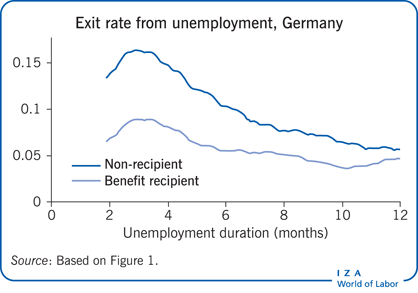Elevator pitch
Unemployment insurance schemes face a well-known trade-off between providing income support to those out of work and reducing their incentive to look for work. This trade-off between benefits and incentives is central to the public debate about extending benefit periods during the recent economic crisis. Often overlooked in this debate is that such support can increase the quality of the work found by the unemployed. This quality rise, in terms of both wages and duration, can be achieved by increasing the time and resources available to an individual to obtain a better job.

Key findings
Pros
When receiving unemployment benefits workers can reject poor offers and continue to look for better jobs.
Unemployment benefits slightly increase both the wages received when work is found and the duration of the new job (job stability).
Jobs found earlier in the benefit period are of higher match quality than those found near the end.
Cons
Unemployment benefits create disincentives, in that workers exert less search effort and demand higher wages.
The higher wages that may be gained when benefits are more generous may reduce firms’ profits and hiring, leading to a higher unemployment rate.
More generous benefits increase the length of periods of unemployment.
The benefits of better job matches may not outweigh the cost of longer periods of unemployment.